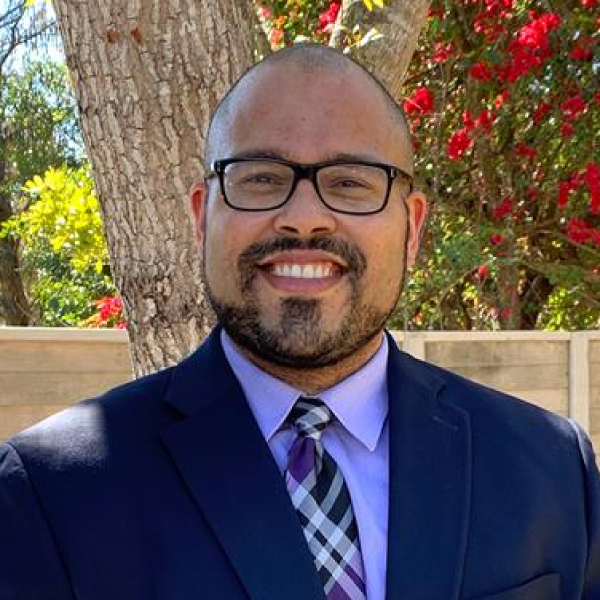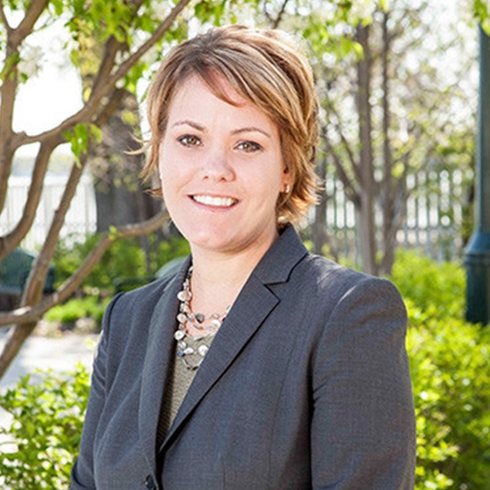Child custody battles are often the most stressful and frustrating part of any divorce or paternity case. You deserve a legal team that will give your Minnesota child custody case the attention it deserves.
At Johnson/Turner Legal, we’re committed to shouldering the burden of child custody battles so parents can focus on what’s really important: their kids.
As part of that commitment, every client we get receives a team consisting of a Minnesota child custody attorney, two paralegals, a client engagement specialist, and a life coach. Our team isn’t only there to handle your case—we’ll also help you manage stress and maintain a strong relationship with your children moving forward into your custody arrangement.

We know that for many parents, legal fees are a concern. The last thing we want parents to be worried about it whether they’ll be charged for a call, which is why we use a flat-fee pricing model. When you work with us, we tell you up-front how much your fees will be. At Johnson/Turner Legal, you pay for our services, not our time. That means you never have to worry about hidden fees or unexpected costs.
We have offices all over Minnesota – Forest Lake, Blaine, Lake Elmo, Wayzata, and Woodbury – to better serve you. Get in touch to our location nearest you for more information about your rights under Minnesota custody laws.
Everything the court does is intended to serve the best interest of the child. In determining what is the best interest of the child, the court considers:
As a parent, if you disagree about who should have custody or what the parenting time schedule should be, then a court will most likely order that an expert evaluate and determine what custody and parenting time arrangement will serve the best interest of the child.
The custody and parenting time evaluator will delve into the lives of the parents and the children. He or she will conduct psychological evaluations and, if necessary, chemical dependency evaluations. The evaluator will meet with the parents, the children, and other people who have watched the parents with their child, such as school counselors, grandparents, daycare providers, teachers, and coaches.
After the evaluation is complete, the evaluator will issue a recommendation regarding custody and parenting time directly to the court. Through this entire process, it is highly beneficial to have a child custody attorney in Minnesota to advocate for you.
A Parenting Time Expeditor (PTE) is a court-appointed individual who is delegated the authority to work with parents to resolve disputes over the applicability and enforcement of parenting time orders. The PTE does not have the power to alter the court-ordered parenting time, but does have the power to resolve disputes regarding the application of the court-ordered parenting time. The role of a PTE is defined by Minn. Stat. § 518.1751.
Parties who have had a history of difficulty working together cooperatively in carrying out the court-ordered parenting time are good candidates for the appointment of a PTE. Also, parties who have or are considering agreeing on a parenting time schedule that allows a large degree of flexibility among the parents may be good candidates for the appointment of a PTE.
In both circumstances, if a dispute arises over such issues as dates of child exchanges, make-up time, whose holiday is it, trading parenting time to accommodate special events, or other parenting time disputes, the court system is not designed to provide quick resolutions of such disputes. Most of the time, by the time a party calls their attorney, schedules a hearing, files and serves motion paperwork and gets in front of a judge, the disputed parenting-time period is long past and too much money has been spent.
The PTE provides a much more responsive, and typically less expensive, means of resolving parenting time disputes. When a dispute arises, one of the parties contacts the PTE by phone, e-mail or mail to inform the PTE of the problem. Then the PTE will contact the other parent to hear from him or her about the problem. The PTE first attempts to facilitate an agreement between the parties to resolve the dispute, but if the parents are unable to agree, the PTE has the court-delegated authority to make a decision that is binding on the parties, subject only to an appeal to the district court. The entire process can be done in hours or days, rather than weeks or months and is typically much less expensive than the court alternative.
Typically, the parties divide the costs of the PTE’s services.
If the court is concerned that the well being of a child is compromised by either or both parents, it will appoint a Guardian ad Litem. The purpose of the Guardian ad Litem is often to make recommendations to the court regarding what custody and parenting time arrangement will be in the best interest of the child.

We break down our approach to child custody into four phases: The foundation-building phase, the settlement-focused phase, the litigation phase, and the conclusion phase.
Our child custody lawyers in Minnesota will walk you through each of these phases, so you know exactly what to expect if you bring us on board for your child custody battle.
During the foundation-building phase, we take the following steps:
Once we build the foundation for your case, it’s time to start moving forward in earnest. This brings us to the next phase.
Coming to a settlement outside of the courtroom is often less stressful and more cost-effective than pursuing a final decree from a judge.
If possible, our Minnesota child custody attorneys will try and encourage the other party to settle with you. This involves the following steps:
Of course, not every case can be settled. When an alternative resolution isn’t available, our child custody lawyers move on to the next phase.
During litigation, our parental rights attorneys take all the necessary steps to protect your rights and advocate for you in court, including:
Once the trial is over, it’s time to move on to the final phase.
During the conclusion phase, our Minnesota child custody lawyers take the following steps to wrap up your case:
Should your condition or circumstances change post-decree, we can also help you file for an order modification to make sure your child custody order accurately reflects your current needs and status. To learn more about that, visit our modifications of orders page.
At Johnson/Turner Legal, we understand the leap of faith parents take when they put us in charge of their child custody case. We don’t take the responsibility lightly, and we’ll do everything in our power to help you reach a positive resolution in your case.
Related Reading:

Attorney

Attorney

Attorney

Partner, Attorney

Partner, Attorney

Senior Client Service Representative

Chief Operating Officer

Client Engagement Specialist

Paralegal Assistant

Client Service Representative

Intake Specialist

Intake Specialist

Head of Intake Specialist Team

Senior Paralegal

Senior Paralegal

Partner, Attorney, Family Law Mediator

Senior Paralegal

Associate Accountant

Client Service Representative

Client Service Representative

Senior Paralegal

Operations Manager

Senior Paralegal

Client Engagement Specialist

Attorney

Senior Paralegal

Senior Paralegal

Engagement Support Specialist

Attorney

Director of Legal Practice Operations

Partner, Attorney

Partner, Attorney & Family Law Mediator

Client Engagement Specialist

Senior Paralegal

Attorney

Partner, Attorney

Attorney

Marketing Manager

Client Engagement Specialist

Coach

Attorney

Our employees are the key to the success of our clients, and ultimately of the firm. We strive to create a culture that instills a sense of belonging. We want to provide our employees with a safety net, which empowers them to take risks and make leaps, while knowing that others will support, assist and, if need be, catch them. Maintaining a firm culture of shared vision, open communication, positive work environment and friendships will foster a cohesive team of professionals working together to champion the successes of our clients, our community partners, and the firm.

We believe the legal industry needs to break free from its stale and uncreative practices in order to serve the needs of today’s clients. We seek to lead the way in revolutionizing the way consumers experience legal representation. We strive to reinvent all major facets of the delivery of legal services, including how we involve our clients in our representation through information sharing and communication, how we produce legal documents, manage cases, and price our services. We understand the challenges that come with innovation, and strive to support one another’s new ideas.

We strive to ensure that our attorneys and staff are fully versed in their practice areas to provide our clients the best advice and representation. The knowledge necessary to do so includes not only mastering the letter of the law, but also understanding trends in the interpretation and application of the law. We are life long learners who know there will never come a day when we have all the answers. We nurture and rely on our strong network of relationships within the firm and beyond. We study; we reflect; we converse; and we challenge one another. Our depth of knowledge sets us apart.

We all experiences life’s challenges, whether as part of our day-to-day routines or as a result of an event or transition in one’s life. Johnson/Turner Legal strives to help its clients and the legal profession rise through such challenges. Whether by pursuing fairness and justice, by solving problems or by bringing new perspective, Johnson/Turner Legal is dedicated to building trust and providing comfort.

We are a service organization, helping people through challenges and transitions in their lives. Our work must extend beyond our clients to champion the success of our colleagues, friends and the communities at large in which we live and work. We work to improve our communities through volunteerism and leadership.


Bloomington
8400 Normandale Lake Blvd., Suite #920 Bloomington, MN 55437
Open hours Mon-Fri 8am – 5pm
Map & Directions
Burnsville
1509 Southcross Dr W, Suite 204
Burnsville, MN 55306
Open hours Mon-Fri 8am – 5pm

Duluth
230 West Superior Street, Suite #400
Duluth, MN 55802
Open hours Mon-Fri 8am – 5pm


Eden Prairie
6385 Old Shady Oak Rd., Suite #250
Eden Prairie, MN 55344
Open hours Mon-Fri 8am – 5pm
Map & Directions

Forest Lake
56 E. Broadway Ave, Suite #102
Forest Lake, MN 55025
Open hours Mon-Fri 8am – 5pm


Maple Grove
11670 Fountains Drive, Suite #200
Maple Grove, MN 55369
Open hours Mon-Fri 8am – 5pm
Map & Directions

Minneapolis
100 S 5th St., Suite #1900
Minneapolis, MN 55402
Open hours Mon-Fri 8am – 5pm
Map & Directions

Rochester
975 34th Avenue NW, Suite #350
Rochester, MN 55901
Open hours Mon-Fri 8am – 5pm

Roseville
2355 Highway 36 West, Suite #400
Roseville, MN 55113
Open hours Mon-Fri 8am – 5pm

St. Paul
445 Minnesota Street, Suite #1500
St. Paul, MN 55101
Open hours Mon-Fri 8am – 5pm

Wayzata
1155 East Wayzata Blvd, Suite #10
Wayzata, MN 55391
Open hours Mon-Fri 8am – 5pm

Woodbury
7377 Currell Blvd., Suite #101
Woodbury, MN 55125
Open hours Mon-Fri 8am – 5pm
The information on this website is for general information purposes only. Nothing on this site should be taken as legal advice for any individual case or situation. This information is not intended to create, and receipt or viewing does not constitute, an attorney-client relationship.
Your privacy is important to us. Please review our Privacy Policy for more information.
© 2024 All Rights Reserved.